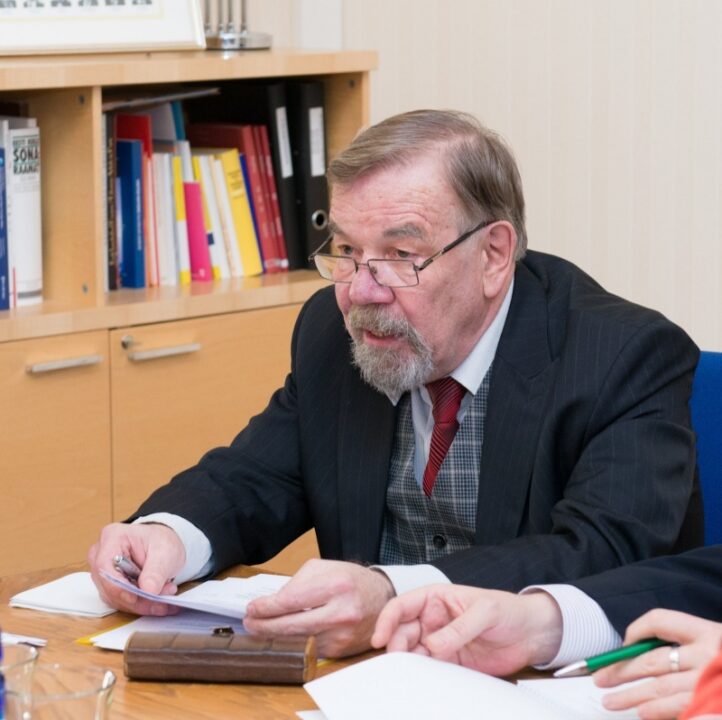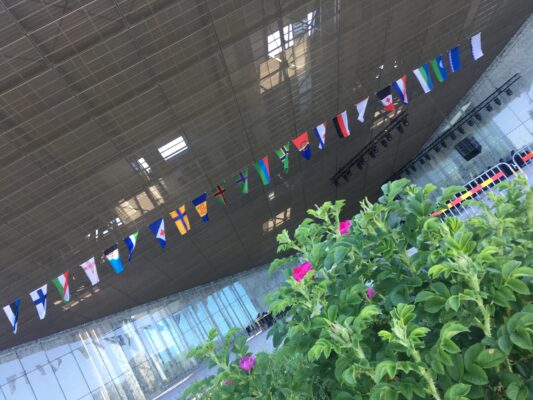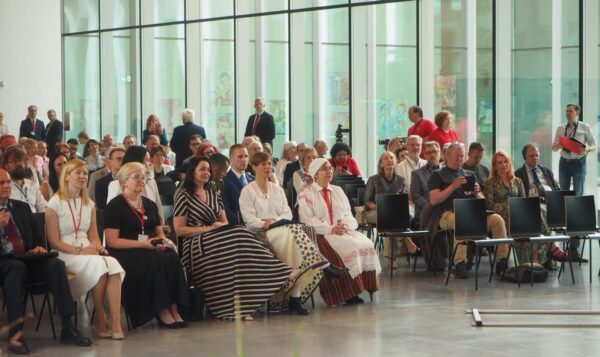Russian delegations, Putin could still attend the Finno-Ugric World Congress in Estonia
Tõnu Seilenthal says in an interview with Estonian World that even if the Russian Federation creates an “iron curtain”, the results of the cooperation so far will still support the vitality and continuity of the Finno-Ugric peoples of Russia.

Tõnu Seilenthal, a member of the Consultative Committee of Finno-Ugric Peoples, the coordinating body of the World Congress of Finno-Ugric Peoples, due to take place this summer in Tartu, Estonia, says in an interview with Estonian World that even if the Russian Federation creates an “iron curtain”, the results of the cooperation so far will still support the vitality and continuity of the Finno-Ugric peoples of Russia; Seilenthal does not yet rule out that representatives of the Russia’s Finno-Ugric community – and even president Vladimir Putin – will still attend the congress.
The Association of the Finno-Ugric Peoples of the Russian Federation announced on 23 April that their representatives will not participate in the next World Congress of Finno-Ugric Peoples, due to take place this June in Estonia. The association called into the question the need for congresses in the future and blamed them for “interfering in the internal affairs of the Russian Federation and its peoples”. The statement especially blamed Estonia and Finland – and their respective delegations.
Oliver Loode, an Estonian human rights advocate of the indigenous Uralic peoples, told Estonian World that the statement is “probably Kremlin’s work”, with instructions possibly coming straight from the president’s administration.
Tõnu Seilenthal, a member of the Consultative Committee of Finno-Ugric Peoples, the coordinating body of the congress as well as a member of the congress’ management committee, says in an interview with Estonian World that it’s not yet clear who’s behind the statement – and neither is absolutely clear whether Russian representatives will attend the congress, due to take place from 16-18 June 2021 at the Estonian National Museum in Tartu.
Did you know about the statement by the Association of the Finno-Ugric Peoples of the Russian Federation – also known as AFUN RF – in advance? Did the organisation consult with you at all, before releasing the statement?
No, I didn’t. The statement came as a surprise to all the members of the consultative committee – it was released just an hour and a half before our meeting on 23 April. Because the statement was unsigned, we did not officially discuss it during our meeting, carrying on as normal with our preparations for the congress.
Who is behind the Russian statement, in your opinion? Is it a work of Moscow’s bureaucrats or did some members of the Russian Finno-Ugric community also have a say?
Insofar it is still unclear who’s issuing orders to AFUN RF, we haven’t got a clue.
We assume it’s not the Russian Finno-Ugric community’s initiative, because some members of the AFUN RF presidium have so far actively participated in the preparation of the congress – for example, as the moderators of various discussion groups.
We are not convinced this action is coordinated with the Russian Federation’s top political administration – since in the wider geopolitical context currently, the Finno-Ugric topics are as insignificant to Russia as they could possibly be.
How do you comment on the Russian association’s accusations that the World Congresses are held not in order to constructively solve the problems of the Finno-Ugrians, but as an instrument of interference – especially by Estonia and Finland – in the internal affairs of the Russian Federation and its peoples? The association also cited a “disrespect” from other nations, claiming that at one time, the largest Russian delegation (Mordovian) were left without a hotel and at other times, the Russian delegations were not provided a bus transport.
First, regarding the Mordovian delegation’s issues. As with any major event, mix-ups also happen. The Estonian delegation has also come across to organisational shortcomings – both at congresses held in Russia and elsewhere. We have never made any statements about this.
Regarding the content – given Russia’s vulnerability and nevertheless hoping for continued cultural cooperation, the congress’s consultative committee abandoned, for the first time, a seminar group that would have had a discussion on language and national policy and the rights of languages and nations.
It must be emphasised that, according to the principles established by the first congress (that took place in Russia in 1992 – editor), the participating nations are equal, regardless of their size (for example, Hungary, with a population of 10 million, has equal voting power with Votes, a Finnic ethnic group that has less than 100 people left), whether or not they have a nation state (only Estonians, Finns and Hungarians have) and regardless of whether they live in the territory of one or more countries (Hungarians live indigenously in several countries, the Sámi live in Russia, Norway, Finland, Sweden etc.).
All these nations are equal. All decisions by the congress and its consultative committee are made by consensus, which means that if at least one nation does not agree, no decision is made.
Does the statement mean Russia is effectively withdrawing from the Finno-Ugric cooperation?
We don’t know yet. We hope common sense will prevail in Russia.
Could some Russian Finno-Ugric representatives still attend the congress?
Several delegations – more than 60 people – representing Finno-Ugric populations in Russia, have registered their participation in the congress. As the congress is organised in a hybrid form, the delegates who cannot attend Tartu in person, can still participate online.
We have extended the final date of registration until 31 May 2021.
What is the general situation of the Finno-Ugric communities of Russia in 2021? What are the concerns and worries and what can Estonia, Finland and Hungary do for those communities?
That’s exactly why the congress is the best-suited platform for exchanging information and experiences and planning new cooperation projects.
According to the Russian law, foreign countries cannot financially support anyone in Russia – doing otherwise would only cause problems for the beneficiaries.
However, a digital co-operation is very well developed – for example, in creating IT support for the learning of Finno-Ugric languages (the support is available worldwide). The scientific and practical experience of Finland and other countries in revitalising the Finno-Ugric languages in Russia will not fade away, as the local activists have already been trained.
Even if the Russian Federation creates an “iron curtain” between our peoples, the results of the cooperation so far will still support the vitality and continuity of the Finno-Ugric peoples of Russia.
The presidents of Russia, Hungary and Finland have all been invited to the congress in Tartu. Who will definitely attend?
The invitations to the presidents are valid. So far, no one has declined. There has also been no renunciation by any Finno-Ugric peoples. But that could change if a pressure from the Russian authorities forces them to do so.



